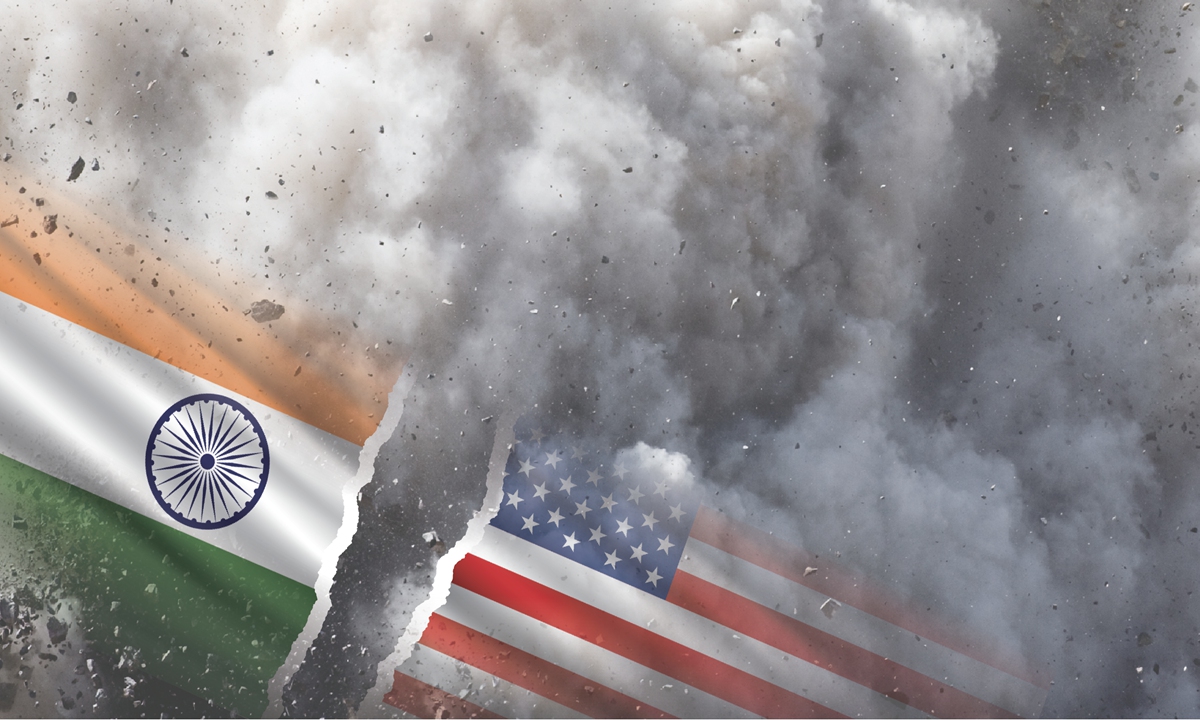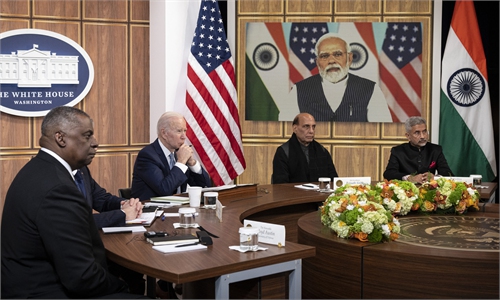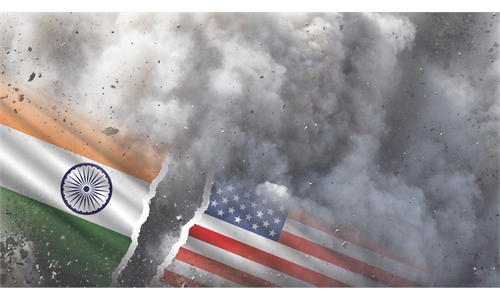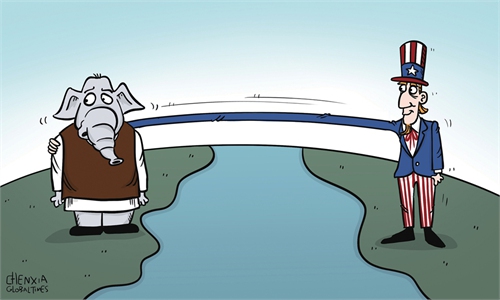
Photo: GT
When developing relations with India, the US has always treated it with a condescending mindset, even at a time when it wants to rope in New Delhi.Speaking on Monday at a joint press briefing during the fourth US-India 2+2 Ministerial Dialogue, US Secretary of State Antony Blinken said the US was monitoring what he called "a rise in human rights abuses" by some Indian officials. Reuters called Blinken's statement "a rare direct rebuke by Washington of the Asian nation's rights record."
In Washington's eyes, the image of New Delhi in terms of freedom and democracy is quite vague: Is it the world's largest democracy or a human rights violator? And when to use one of these two labels to describe India depends entirely on the US' needs from the South Asian country.
For a long time, the US has been half-hearted about India's human rights issues to avoid a worsened relationship with India. As Washington continues its strategy of containing Beijing, this is a way to pull New Delhi over to its side.
However, India didn't closely follow the US' steps to condemn or sanction Russia amid the ongoing Russia-Ukraine conflict. Lan Jianxue, the director of the Department for Asia-Pacific Studies at the China Institute of International Studies, told the Global Times that Blinken brought up India's human rights issues to express Washington's dissatisfaction with New Delhi's stance.
The "carrot and stick" policy applied to relations with India is one of the US' classic diplomatic maneuvers. It seems Washington has run out of means to rope India in, so it's trying a tougher strategy to coerce India.
According to Lan, this highlights one of the characteristics of US foreign policy, that is, to achieve its goals without scruples. Even with its allies and partners, Washington always tries to force them to follow the course it has charted.
"Such a strategy works well with the US' closest allies, such as Japan and Australia, but not with India. For one, Washington and New Delhi are using each other for their own interests. Moreover, India still maintains a tradition of strategic autonomy," noted Lan.
The Russia-Ukraine conflict has fully exposed one truth about US foreign policy: It has always been "America first." An example is how Washington reacts to India's decision to continue purchasing energy from Russia. At first, some voices in the US threatened India with possible sanctions; and now the US president can directly tell the Indian prime minister that it is not in India's interest to buy more oil from Russia, as White House spokesperson Jen Psaki revealed Monday.
Perhaps buying less oil from Russia is more in the interest of the US than in India's. A country knows best what its interests are, and it doesn't need other countries to lecture them. Washington is dictating to New Delhi what is right and should be done. No wonder an Indian netizen commented that the US talks as if it's the "godfather" of India.
The US doesn't even try to hide its hypocrisy, selfishness, and hegemonic mentality. This is why many countries, including India, disapprove of and even resent many of the US' actions. In particular, many US allies and partners have realized they can be easily tied to Washington's chariot and act as cannon fodder in its dangerous game.
Lan believes many Indian elites have begun to reflect on the country's ties with the US. "In the past few years, India has taken such a radical pro-US policy that it even somehow abandoned its traditional strategy in foreign policy. But New Delhi didn't receive the results it had expected from such an approach. India's diplomatic pendulum is slowly swinging back to pursuing strategic autonomy and non-alignment," he said.



